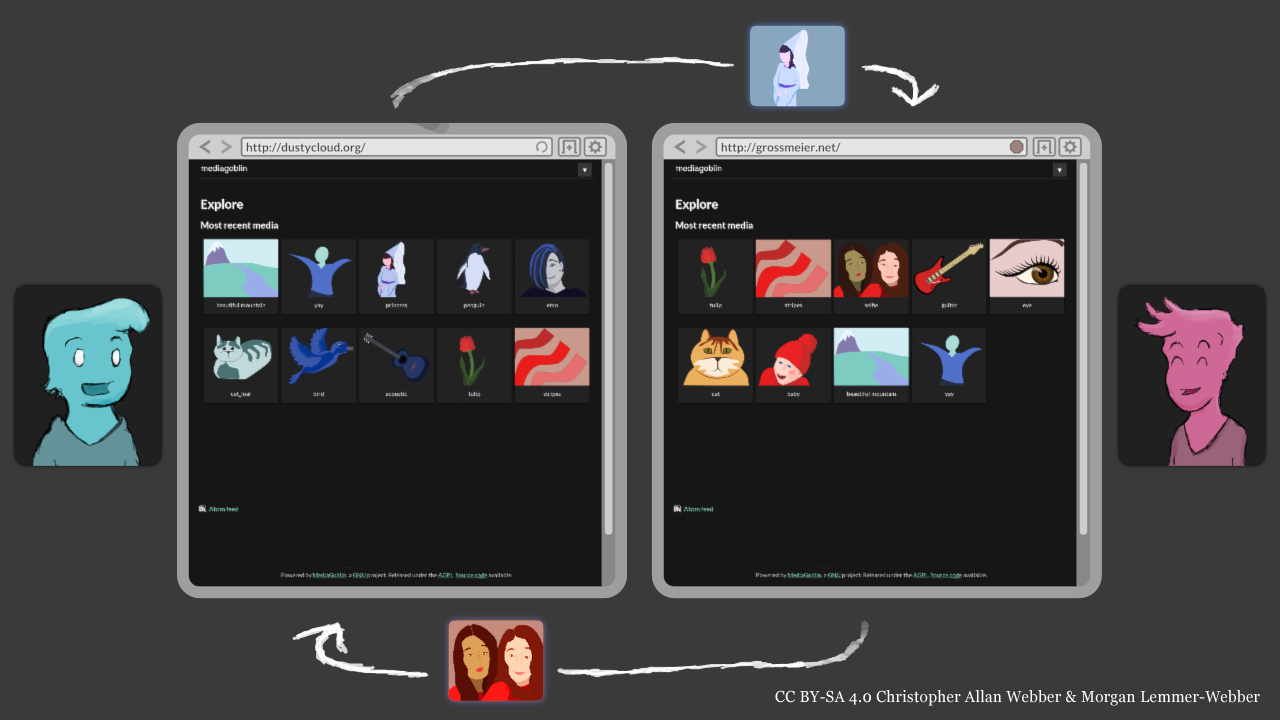ActivityStreams 2.0 is now a W3C Recommendation
23 May 2017 | Archive
 The Social Web Working Group has published ActivityStreams 2.0 as a Recommendation. AS2 provides a JSON data model and vocabulary for representing common online social objects, activities, and the relationships between them. AS2 is anticipated to become the de-facto standard for sharing social data between disparate (perhaps decentralized) Social Web applications, and builds on the well-used ActivityStreams 1.0. The AS2 Vocabulary provides a core set of terms, which are extensible using JSON-LD, and extensions may be made stable by means of the Social Web Incubator Community Group. AS2 may be used as part of any protocol, but the Social Web Working Group is developing ActivityPub specifically for AS2-based client-to-server and server-to-server interactions.
The Social Web Working Group has published ActivityStreams 2.0 as a Recommendation. AS2 provides a JSON data model and vocabulary for representing common online social objects, activities, and the relationships between them. AS2 is anticipated to become the de-facto standard for sharing social data between disparate (perhaps decentralized) Social Web applications, and builds on the well-used ActivityStreams 1.0. The AS2 Vocabulary provides a core set of terms, which are extensible using JSON-LD, and extensions may be made stable by means of the Social Web Incubator Community Group. AS2 may be used as part of any protocol, but the Social Web Working Group is developing ActivityPub specifically for AS2-based client-to-server and server-to-server interactions.

Micropub is a W3C Recommendation
23 May 2017 | Archive
The Social Web Working Group has published a W3C Recommendation of Micropub. Micropub is a client-to-server protocol used to create, update and delete social networking content. Web and native apps can use Micropub to post notes, photos, events, and many others to servers that support the protocol. Users can choose to create content in a variety of client posting interfaces, while maintaining control of where the data is stored.
Prior to being adopted by the W3C Social Web Working Group for standardization, Micropub already had over a dozen independent implementations in the IndieWeb community. There are now over a dozen independent client and server implementations across a wide variety of languages and platforms.








